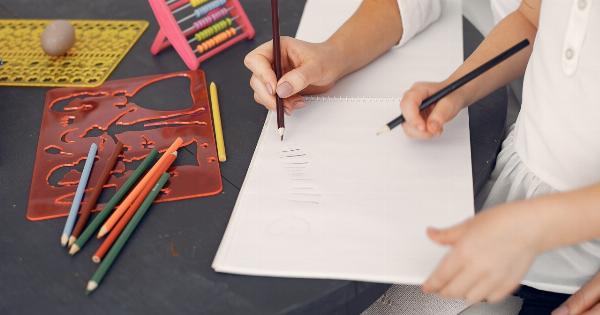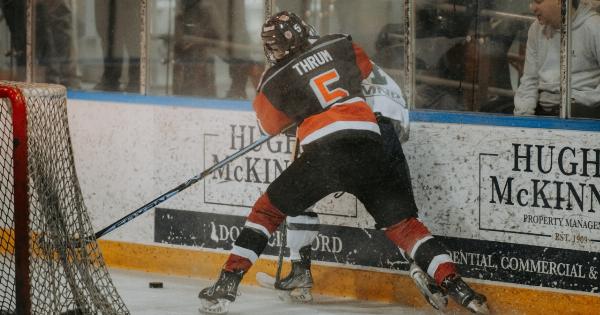Dyslexia is a learning difference that affects the way a person reads, writes, and spells. It is a neurological condition that affects the way the brain processes language. Dyslexia is a common condition affecting up to 1 in 10 people.
It is often diagnosed in childhood, but it can also affect adults. As a parent, it is natural to be concerned about your child’s reading and writing abilities. If you suspect that your child may have dyslexia, there are several signs to look out for.
Signs and Symptoms of Dyslexia
Children with dyslexia may show signs of difficulty with reading, writing, and spelling. They may also struggle with memorizing and recalling information. Here are some common signs of dyslexia:.
1. Difficulty with Phonics
Phonics refers to the ability to connect sounds with letters to form words. Children with dyslexia may have difficulty recognizing sounds in words or may struggle to connect sounds to letters.
Result: Based on the information provided, it is possible that your child may have difficulty with phonics. It is important to seek assessment from an educational psychologist or other qualified professional to determine if your child has dyslexia.
2. Trouble with Reading Comprehension
Children with dyslexia may struggle with reading comprehension. They may be able to decode words, but they may have difficulty understanding what they have read.
Result: Based on the information provided, it is possible that your child may have difficulty with reading comprehension.
It is important to seek assessment from an educational psychologist or other qualified professional to determine if your child has dyslexia.
3. Poor Spelling
Children with dyslexia may have difficulty with spelling. They may spell words incorrectly or have trouble remembering how to spell certain words.
Result: Based on the information provided, it is possible that your child may have difficulty with spelling. It is important to seek assessment from an educational psychologist or other qualified professional to determine if your child has dyslexia.
4. Difficulty Memorizing
Children with dyslexia may have difficulty memorizing or recalling information. They may forget names, dates, and facts, or may have trouble with rote memorization tasks.
Result: Based on the information provided, it is possible that your child may have difficulty with memorizing. It is important to seek assessment from an educational psychologist or other qualified professional to determine if your child has dyslexia.
5. Slow Reading Speed
Children with dyslexia may read slowly or may have trouble keeping up with their peers. They may struggle to read aloud or may avoid reading altogether.
Result: Based on the information provided, it is possible that your child may have difficulty with reading speed.
It is important to seek assessment from an educational psychologist or other qualified professional to determine if your child has dyslexia.
6. Difficulty with Handwriting
Children with dyslexia may struggle with handwriting. They may have difficulty with letter formation, spacing, or sizing of letters. Their handwriting may be messy or difficult to read.
Result: Based on the information provided, it is possible that your child may have difficulty with handwriting. It is important to seek assessment from an educational psychologist or other qualified professional to determine if your child has dyslexia.
Dyslexia Test: How to Get a Diagnosis
If you suspect that your child may have dyslexia, the first step is to talk to your child’s teacher or school counselor. They can provide guidance on getting your child assessed for dyslexia.
A diagnosis of dyslexia is typically made by an educational psychologist or other qualified professional. The assessment process may involve tests of reading, writing, and spelling ability, as well as a review of your child’s developmental history.
Treating Dyslexia
While there is no cure for dyslexia, there are many strategies and accommodations that can help children with dyslexia succeed academically. These may include:.
1. Multisensory Learning
Children with dyslexia often benefit from multisensory learning, which involves teaching through multiple senses (such as seeing, hearing, and touching).
Result: Multisensory learning can be an effective strategy for helping children with dyslexia succeed academically. Consider working with your child’s teacher or a tutor who is trained in multisensory teaching methods.
2. Assistive Technology
Assistive technology, such as text-to-speech software or speech recognition software, can help children with dyslexia to read and write more effectively.
Result: Assistive technology can be an effective tool for helping children with dyslexia succeed academically. Consider exploring the different assistive technology options that are available.
3. Accommodations in the Classroom
Children with dyslexia may benefit from accommodations in the classroom, such as extra time for tests and assignments, or having instructions presented in a different way.
Result: Accommodations in the classroom can be an effective way to help children with dyslexia succeed academically. Talk to your child’s teacher about what accommodations may be appropriate.
Conclusion
Dyslexia is a common learning difference that affects the way a person reads, writes, and spells. If you suspect that your child may have dyslexia, there are several signs to look out for.
It is important to seek assessment from an educational psychologist or other qualified professional to determine if your child has dyslexia. While there is no cure for dyslexia, there are many strategies and accommodations that can help children with dyslexia succeed academically.





























